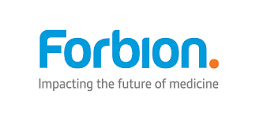in company news
Proceeds used to develop small molecule inhibitor of SARS-CoV-2 and other RNA viruses
Naarden, The Netherlands, and Munich, Germany, January 19 2021 – Forbion, a leading European life sciences venture capital firm, today announces a $2.3m seed investment in newly formed CoviCept Therapeutics, Inc. (“CoviCept”), a California-based company that is developing a small molecule that inhibits the replication of SARS-CoV-2 (COVID-19) and other RNA viruses.
CoviCept’s lead molecule has a unique mechanism of action that is based on interference of a host cell protein and is therefore expected to have a low risk of viral resistance. It has been demonstrated to inhibit SARS-CoV-2 replication in a relevant mammalian model at a clinically relevant dose. A manufacturing process for the lead compound has been established and it has demonstrated good bioavailability and safety in humans in phase 1 studies.
CoviCept was founded by Sam Tsimikas, Philip Gordts and Jeffrey Esko, all from the University of California San Diego. The Company’s aim is to initiate a first clinical study in the second half of 2021.
Professor Tsimikas, Co-Founder, Chairman and Chief Executive Officer of CoviCept, commented: “We are pleased that Forbion has invested in us to support our continued development of a much-needed direct therapeutic option to the COVID-19 pandemic, and other RNA viruses. Forbion will provide the necessary financial and management support to allow the Company to achieve Phase 2 proof of concept data. Forbion’s track record and expertise in supporting the development of early-stage companies make them the ideal partner for CoviCept.”
Sander van Deventer, Operating Partner of Forbion, added: “Our investment in CoviCept is an example of Forbion’s commitment to responsible drug development. RNA viruses such as SARS-CoV-2, SARS-CoV-1, MERS-CoV, Ebola, Dengue, Chikungunya and Zika are the most likely cause of future pandemics. A small molecule like CoviCept’s, that can be stockpiled to be immediately available and that could be used in multiple viruses, is of enormous benefit to global health.”
The board of directors of CoviCept will comprise Sam Tsimikas, Philip Gordts, Jeffrey Esko and Sander van Deventer (Forbion).
-Ends-
For more information please contact:
Forbion contact:
Sander van Deventer, Operating Partner
P: +31 (0) 35 699 30 00
Instinctif Partners for Forbion
Melanie Toyne-Sewell/Phillip Marriage
Email: forbion@instinctif.com
P: +44 (0)207 457 2020
Notes to Editors
About Forbion
Forbion is a dedicated life sciences venture capital firm with offices in The Netherlands, Germany and Singapore. Forbion invests in life sciences companies that are active in the (bio-) pharmaceutical space.
Forbion manages well over EUR 1.7 billion across multiple fund strategies that cover all stages of (bio)pharmaceutical drug development. Forbion’s current team consists of 20 life sciences investment professionals that have built an impressive performance track record since the late nineties with successful investments in over 69 companies.
The firm is a signatory to the United Nations Principles for Responsible Investment. Besides financial objectives, Forbion selects investments that will positively affect the health and well-being of patients.
Its investors include the EIF, through its European Recovery Programme (ERP), LfA, Dutch Venture Initiative (DVI), AMUF and EFSI facilities and KfW Capital through the Programme, “ERP – Venture Capital Fonds investments”. Forbion operates a joint venture with BGV, the manager of seed and early-stage funds, especially focused on Benelux and Germany.
For more information, please visit: www.forbion.com.
About CoviCept Therapeutics, Inc.
CoviCept Therapeutics, Inc. is a newly founded company based in San Diego, USA, focused on the development of a small molecule that inhibits the replication and spread of RNA viruses, including SARS-Cov-2.
CoviCept’s lead program
CoviCept is developing a small molecule that targets a host protein that is critical for RNA viral replication and that has shown efficacy in a preclinical model of SARS-CoV-2 infection, and in cell cultures infected with various RNA viruses including Zika and Dengue. The lead molecule has shown good tolerability, availability and biodistribution in humans.
RNA viruses and pandemics
RNA viruses such as SARS-CoV-1 (“COVID”), SARS-CoV-2 (“SARS”), MERS-CoV (“MERS”), Dengue, Chikungunya, Zika and Ebola, are considered to be the most likely causes of devastating global pandemics. Vaccination strategies can prevent the spread of these viruses and protect individuals but require a significant lead time before implementation and showing efficacy. Hence, a small molecule that can be stockpiled and used to inhibit viral replication of these viruses would be an integral component of the response to pandemics caused by RNA viruses.
